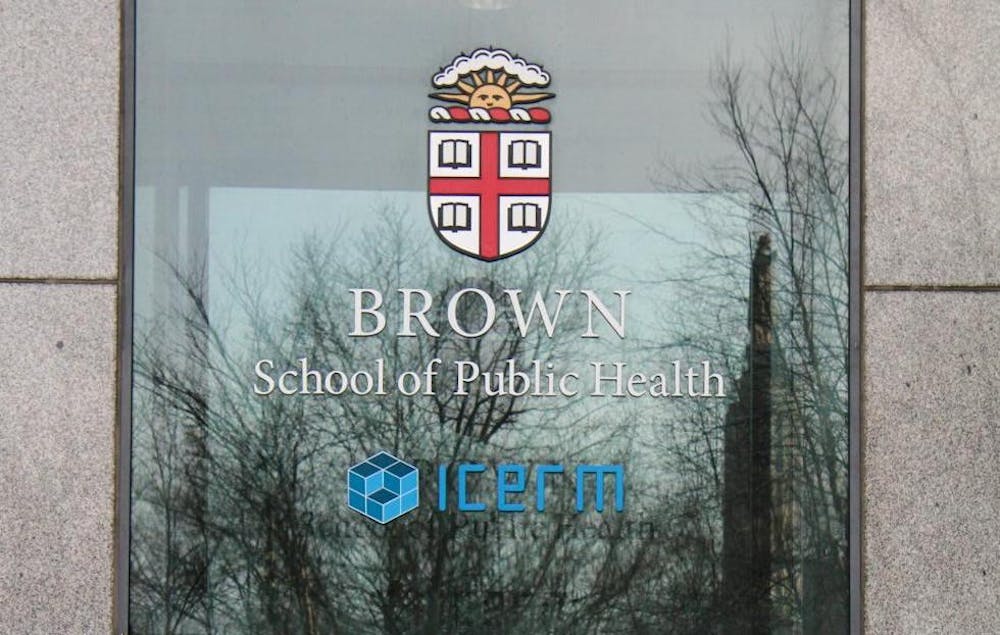On Feb. 28, students at the School of Public Health delivered an open letter to the school’s Office of Diversity, Equity and Inclusion. The letter called on the SPH to speak out about “the genocide and public health disaster in Palestine.”
Written by three members of Brown SPH for Palestine — a collective of 10 SPH-affiliated members — and signed by 107 students, alumni, faculty and staff, the letter is addressed to Dean Ashish Jha, the school’s DEI office and the SPH as a whole.
The letter asks that the SPH “acknowledge the ongoing genocide and public health crisis in Gaza,” call for a ceasefire in the region and formally support a divestment proposal “from companies that fund and profit off of public health destruction in Palestine.” It also asks SPH administrators to ensure the prevention of “censorship and intimidation” against school members who “speak up for Palestinian human rights.”
Brown will “review the inquiry and respond directly” to the signatories, University Spokesperson Brian Clark wrote in an email to The Herald. Clark emphasized that the University does not “work through the news media to address community concerns — rather, we value direct engagement with community members and our response will come first directly to those who were in touch.”
Anna Utrata GS, an organizer for SPH for Palestine and one of the letter’s authors, said she hopes the letter convinces the school to frame the “catastrophic losses” in Gaza as a “huge public health crisis,” pointing to starvation, aid blockades and killings of health care professionals and high maternal mortality rates as examples.
According to Nour Abaherah GS, another author and an organizer for SPH for Palestine, students wrote the letter because they felt the university had a responsibility to speak about “public health crises and catastrophes that are happening,” he said. “But the school remained silent.”
On Feb. 22, Jha responded to an email Utrata, Abaherah and Aleksa Kaye GS — another organizer for SPH for Palestine — sent to him privately on Jan. 20, which had asked the SPH to “consider issuing a statement and expressing solidarity with those affected by the public health crisis in Palestine,” according to records reviewed by The Herald.
In an email response reviewed by The Herald, Jha wrote that “it is not uncommon during moments of such suffering around the world to hear from our community requesting public statements.”
“These are very difficult times for public health,” he added.“Seeing the health system in Gaza in disarray is particularly difficult.”
“I continue to promote open and respectful dialogue, support of all affected members of our community and a clear stand against discrimination and harassment of any kind,” Jha wrote, adding that “we will need to continue to bring our expertise — in public health science — to bear on the critical mission of strengthening public health.”
Jha pointed to the University’s upcoming events this semester, such as “a series of conversations on the situation in the Middle East” and programming about “the health implications of conflict.”
In collaboration with the Center for Middle East Studies, the SPH hosted a webinar titled “The Impacts of War on Public Health: A look at the health disaster facing Palestinians in Gaza” on Feb. 5. The event sought to “outline the links between conflict and public health, provide context for the public health situation in Gaza and Palestine before October and hear first-hand testimony about treating patients in the Gaza Strip,” according to the event posting.
Utrata shared, in her experience, many students, faculty and staff are afraid to discuss issues surrounding Palestine. She added that she believes statements from the SPH can serve as a reassurance for students to share their opinions without fear of retaliation.
Though the SPH hasn’t issued any public statements about Gaza or Israel since Oct. 7, President Christina Paxson P’19 P’MD’20 has made multiple statements and public remarks addressing issues including free speech on campus and support for affected students. On Feb. 5, in an announcement about the University’s “Strengthening Our Community Amid Conflict” initiative, Paxson reaffirmed that the University has “an obligation to both secure the safety and well-being of all members of our community.”
Abaherah and Utrata highlighted a series of letters sent in October and November by Sandro Galea, dean of the Boston University School of Public Health, which provided advice on how to discuss issues pertaining to Gaza and Israel, reflected on the history of “competing injustices in the Middle East” and acknowledged the death, displacement and “unspeakably harsh conditions” faced by people in Gaza.
“That acknowledgment, even if it wasn’t leaning towards a Palestinian or Israeli (perspective), was just really powerful from a public health point of view — and actually, from a humanitarian point of view,” Abaherah said.

Katie Jain is a University News editor from New Jersey overseeing the graduate student life beat. She is a senior concentrating in International and Public Affairs and History.





